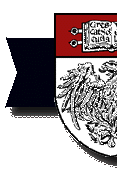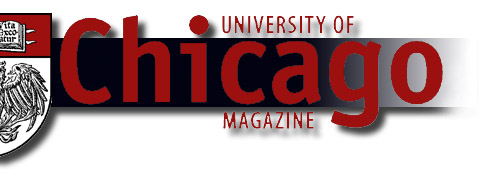 |

In their own words…
Elaine Fuchs
Titled “Shapes of an Education at the University of Chicago,” the
commencement address by biologist Elaine Fuchs focused on how the
graduates’ education has given them the ability to sculpt their
own lives.
“You are leaving behind the world that was created for you, the
confines of a life which, however admirable, was not a life created
in your own image, but one in which you existed,” she said. Their
professors, she noted, have given the students “a taste of the nectar
of scholarship and genius,” introducing them to the likes of Dickinson
and Darwin, Plato and Curie.
“But the great pioneers of their fields serve only as examples,
if not exemplary ones, of what is possible in life and what is the
epitome of the meaning of a career,” Fuchs continued. “From these
examples, each of you has begun to develop your own interests and
directions, your own image of your destiny.”
Fuchs also emphasized the ongoing importance of critical thinking
and asking questions. “Your education has taught you to be morally
and ethically responsible,” she said, “and to bring philosophical
reflection into your chosen profession, your community, and your
life as a whole.”
Bill Clinton
While the bulk of President Bill Clinton’s speech focused, as planned,
on the global economy, he began by commenting on Kosovo, which NATO
forces were beginning to occupy that morning.
“We are determined to reverse the ethnic cleansing,” Clinton said.
“We look forward to working with Russia and others who may not have
agreed with our military campaign but do agree with the proposition
that all the people of that tiny land—Serb and Albanian alike—should
be able to live in peace and dignity.”
He cautioned students: “Even when we don’t get along, even if we
fight, the innocent civilians should not be swept up en masse, as
they were there.” Drawing applause, he added, “I hope you will uphold
that principle when you’re in a position to make decisions.”
With a nod to the University’s reputation for free-market beliefs,
Clinton then turned his attention to the question of how to “create
a global economy with a human face—one that rewards work everywhere;
one that gives all people a chance to improve their lot and still
raise their families in dignity; and [one that] support[s] communities
that are coming together, not being torn apart.”
To reach this goal, he called for keeping the U.S. “on the cutting
edge of progress and change” by continuing to invest in research,
including the next generation of the Internet. At the same time,
he said, “We have to figure out how to build a system that is both
free and fair, and not just to workers in the United States, but
in other countries of the world.” To that end, Clinton proposed
using “trade talks to protect the environment and the rights of
workers”; working against forced labor and child labor; trading
more with Africa, Central America, and the Caribbean, and working
to bring China into the World Trade Organization; investing in education,
public health, and the environment worldwide; reducing debt for
poor countries; and growing the economy while improving the environment.
In closing, Clinton said: “It will require a genuine commitment—a
genuine commitment to the proposition that societies should be free,
but they should be coherent; that we should always be able to balance
work with family and community; and that what unites us is profoundly
more important than all of our differences. I hope that that is
the world of your future, the world that you will make.”
|



